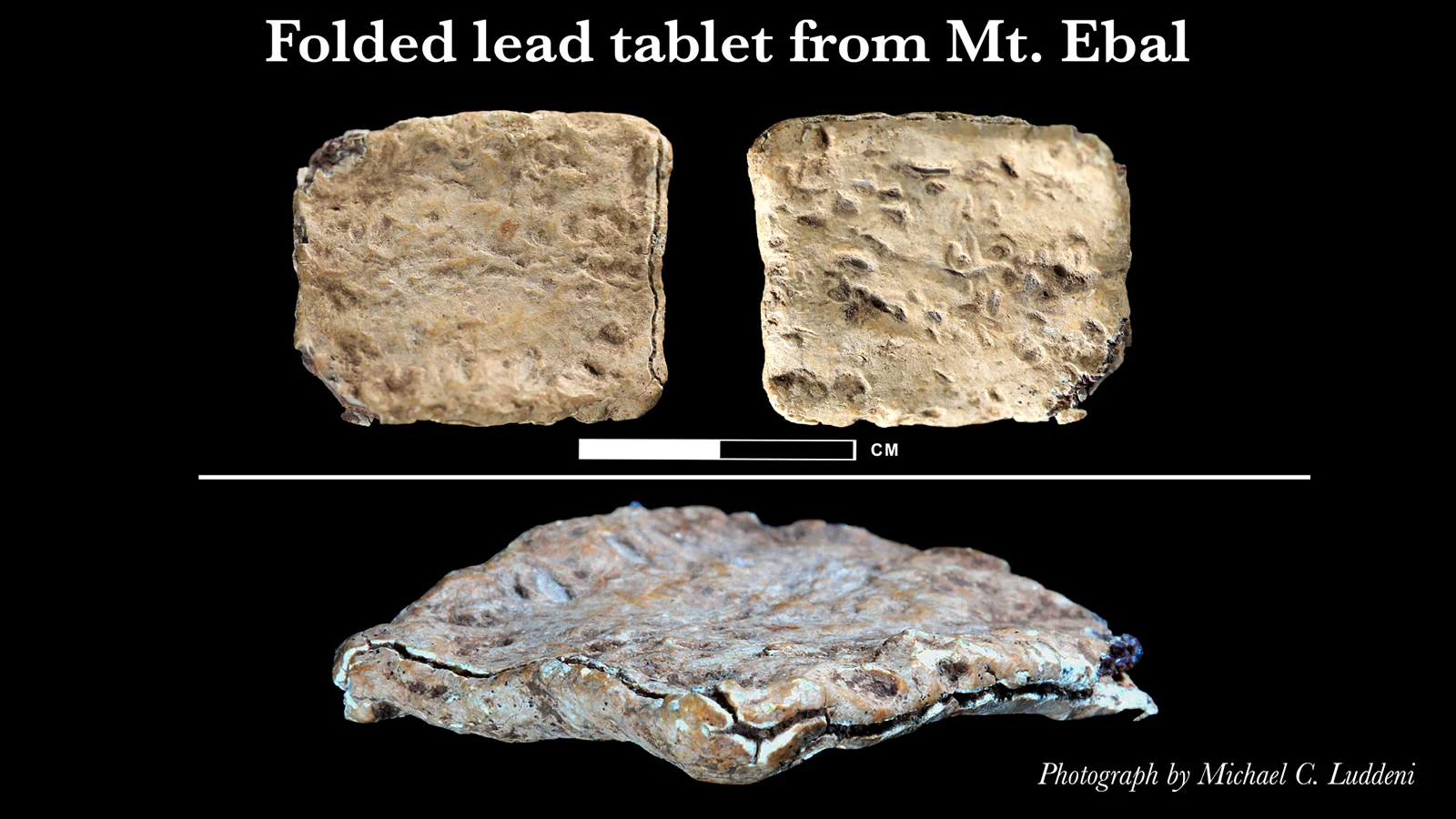The artifact, less than 1 inch in length and width, and known as a curse tablet, may spur renewed debate on the dating of biblical events, especially those told in the Book of Exodus.
This curse tablet was discovered by Mount Ebal, which is near the Palestinian city of Nablus. Photo by Michael C. LuddeniMarch 26, 2022By Jerry PattengaleShareTweetShare
(RNS) — An ancient tablet discovered near the Palestinian city of Nablus may contain the earliest known mention of God’s name in proto-alphabetic Hebrew.
Scott Stripling, director of the Archaeological Studies Institute at The Bible Seminary in Katy, Texas, announced the discovery of the lead tablet Thursday (March 24).
He said it could push back the written record of the name “Yahweh” a couple of centuries earlier, to at least 1200 B.C. and perhaps as early as 1400 B.C.
The finding may also spur renewed debate on the dating of biblical events, especially those told in the Book of Exodus. A peer-reviewed article is in process.
The artifact, less than 1 inch in length and width and known as a curse tablet, also recalls the account of Joshua building an altar nearby, which Israeli archaeologist Adam Zertal excavated in the 1980s.
The curse tablet was discovered near Mount Ebal, also called the Mount of the Curse in the books of Deuteronomy and Joshua. Stripling found it in a dump site, part of the structure Zertal identified as Joshua’s altar. Stripling said the finding was a confirmation of the biblical account.
In recent years, Stripling also announced the discovery of a Tabernacle platform during his ongoing excavations at biblical Shiloh.



Add Comment